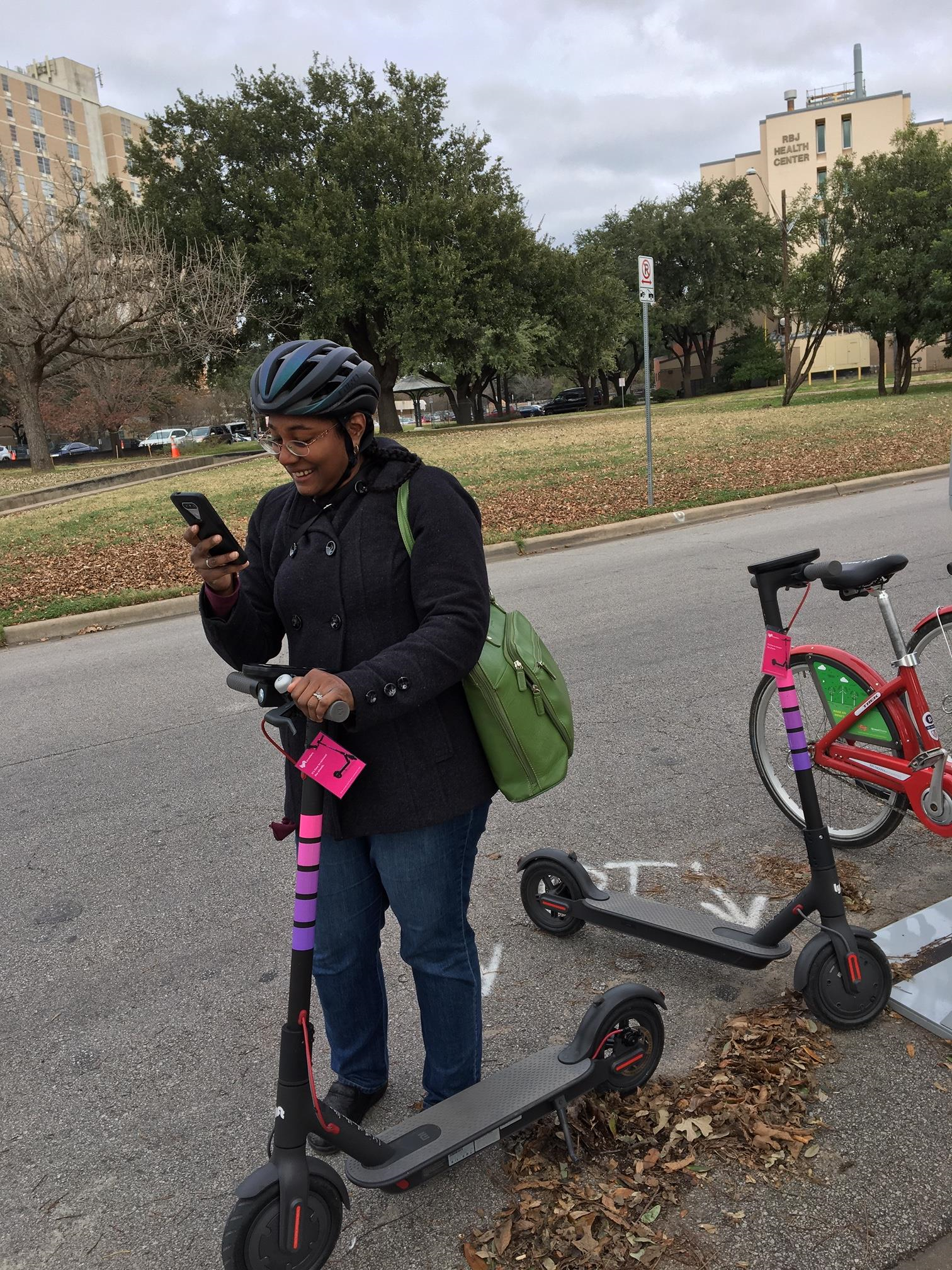Characterization of Dockless Electric Scooter Related Injury Incidents – Austin, Texas, September-November, 2018
- We interviewed and reviewed the medical records of people who used emergency medical services from September 5th, 2018 to November 30th, 2018 for injuries associated with rentable dockless electric scooters. We learned about the types of injuries people had and the things that may have put them at risk for those injuries, as well as what things might have helped keep their injuries from being worse than they were. Almost half of the people we identified had a severe injury, such as a broken leg. Half of those we spoke to said a surface condition like a pot hole or crack in the street may have contributed to their injury. A little more than a third of injured individuals said they would use a dockless electric scooter again.
- Rentable dockless electric scooters are a new mode of transportation and the public health impact is generally unknown. This is the first study that interviewed injured people to try to better understand how their injury occurred and what the risk and protective factors for injuries might be. Additionally, we were able to validate methods of identifying rentable dockless electric scooter injuries, which can help other cities and communities across the United States understand the public health impact of this new mode of transportation and discover ways to potentially prevent injuries.
- The results of this study will help inform injury prevention strategies, as well as how we track injuries related to dockless electric scooters.
“This was the first study to look at the public health impact of rentable dockless electric scooters by speaking with people who were hurt while using them. We found that less than one percent of injured people were wearing a helmet when their injury occurred. We know from bicycle-related injuries and deaths that helmet use reduces the risk of head and brain injuries in the event of a bicycle crash. Helmet use might also reduce the risk of head and brain injuries in the event of a dockless electric scooter crash.”
– Laurel Harduar Morano, PhD, MPH, EIS Class of 2017
 [PNG - 5 MB]
[PNG - 5 MB]EIS officer Laurel Harduar Morano, PhD, MPH, tests a dockless electric scooter in Austin, TX
CDC Media Relations
(404) 639-3286
media@cdc.gov

Laurel Harduar Morano, PhD, MPH,
EIS Class of 2017
CDC National Institute for Occupational Safety and Health
Division of Surveillance, Hazard Evaluations & Field Studies
Education: PhD: University of North Carolina, Chapel Hill,2016
MPH: Boston University, 2004
BS: University of Alaska, Fairbanks, 2002
Work Experience: Data Consultant, Florida Department of Health, Division of Disease Control, Tallahassee, Florida, 2009-Present
Social/Clinical Research Specialist, Carolina Center for Health Informatics, Chapel Hill, North Carolina 2015-Present
Consultant, Pennsylvania Department of Health, Harrisburg, Pennsylvania, 2016-2016
Teaching Assistant, University of North Carolina at Chapel Hill, Chapel Hill, North Carolina 2013-2012